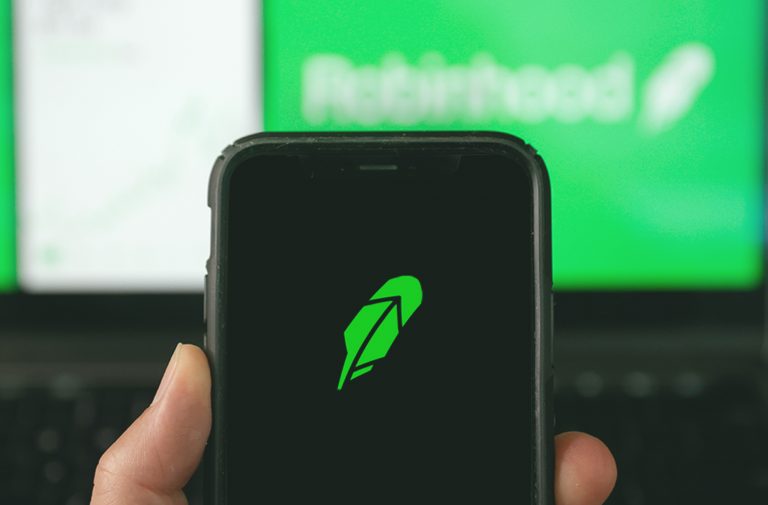
Robinhood’s attempt to revolutionize private equity access with tokenized shares of OpenAI and SpaceX is unraveling fast, after OpenAI issued a stark warning that it had no role in the offering.
The clash, which initially triggered a rally in Robinhood’s stock, has now reversed course, dragging the shares down as concerns mount about the legality and ethics of the launch.
Background: Robinhood’s Tokenized Equity Debut
The controversy stems from Robinhood’s announcement on Monday, unveiled during a high-profile product showcase in Cannes, France. The company introduced a new range of tokenized equities—blockchain-based assets designed to give retail investors exposure to shares of private firms, including Elon Musk’s SpaceX and Sam Altman’s OpenAI. These tokens were rolled out on Robinhood’s EU crypto platform, which now offers more than 200 tokenized stocks and ETFs for trading five days a week, with no commission or spread.
Register for Tekedia Mini-MBA edition 19 (Feb 9 – May 2, 2026).
Register for Tekedia AI in Business Masterclass.
Join Tekedia Capital Syndicate and co-invest in great global startups.
Register for Tekedia AI Lab.
The launch was touted as a landmark move in crypto-financial innovation, aimed at breaking down traditional barriers that restrict access to private markets.
“The goal with tokenization is to let anyone participate in this economy,” said Johann Kerbrat, Robinhood’s Senior VP and General Manager of Crypto.
To drive adoption, Robinhood even launched a promotion, offering 5 euros worth of OpenAI and SpaceX tokens to every eligible EU user who signed up to trade stock tokens by July 7. The offering is made possible by Robinhood’s stake in a special purpose vehicle (SPV) that holds shares in the companies, allowing the platform to issue synthetic tokens representing indirect exposure.
The move initially thrilled investors, propelling Robinhood shares above $100—a new all-time high for the company—just hours after the announcement.
OpenAI’s Disclaimer
But the euphoria didn’t last. In a post on X (formerly Twitter) late Monday, OpenAI made it clear it had not authorized the use of its name or equity in any Robinhood product.
“These ‘OpenAI tokens’ are not OpenAI equity,” the company stated. “We did not partner with Robinhood, were not involved in this, and do not endorse it.”
OpenAI went further, warning users that “any transfer of OpenAI equity requires our approval — we did not approve any transfer,” and concluded with a blunt: “Please be careful.”
The post directly contradicted Robinhood’s pitch, sparking widespread confusion among users and analysts. The denial raised questions about whether Robinhood’s tokens might mislead investors into thinking they’re purchasing real equity, and whether regulators could step in.
Robinhood responded by clarifying that the tokens do not represent actual ownership but are synthetic instruments tied to an SPV that indirectly holds shares.
From Surge to Slide: Market Turns on Robinhood
While the initial announcement fueled investor optimism and pushed Robinhood stock above $100, OpenAI’s forceful disavowal triggered a sell-off. By Tuesday morning, Robinhood shares had slid by over 7%, erasing much of the earlier gains. The also stock dipped about 2% in Thursday’s premarket, trimming gains from Wednesday’s roughly 6% pop, on renewed questions over the token offering.
Analysts say the company now faces reputational and regulatory risks, particularly if other private firms whose names are being tokenized follow OpenAI’s lead in distancing themselves.
The episode illustrates the growing tension between crypto platforms pushing for decentralized access to capital and private companies aiming to maintain strict control over their equity and brand. It also reignites concerns over regulatory oversight: Robinhood’s crypto offerings are not available to U.S. users, partly because of tighter rules around securities and accredited investor definitions. In contrast, the European Union’s looser investment restrictions have enabled the rollout—but perhaps at the cost of investor clarity.
Additionally, the OpenAI-Robinhood conflict underscores the fragile foundation underpinning tokenized equity. While tokenization has long been heralded as the next frontier in financial democratization, the lack of formal partnerships with the companies being tokenized could prove to be a legal minefield.
Robinhood’s strategy relies on a network of SPVs to replicate exposure to elite, hard-to-access startups. But if companies like OpenAI push back—asserting control over their equity, brand, and investor relations—the risk of regulatory intervention and investor backlash escalates.
As of now, SpaceX has not publicly commented on the tokens issued in its name. However, the situation remains fluid. Any further rejection from Musk’s camp could deepen the fallout and invite regulatory scrutiny across multiple jurisdictions.
Thus, the broader question remains: Can crypto platforms truly democratize access to private markets without buy-in from the companies themselves? For now, Robinhood’s setback with OpenAI suggests that the answer may not be as bullish as the blockchain dreamers would like.



